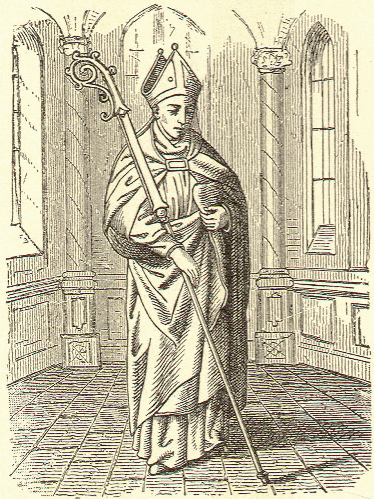We continue our reflections on the writings of Saint Augustine of Hippo (354-430), whose feast day we celebrated yesterday. Bishop, confessor, Doctor of the Church, and one of the Four Great Fathers of the Latin Church, Augustine is one of the most influential thinkers and writers of Catholicism. His legacy in written works numbers at over 100 books, and 5,000,000 words! Within those words, the philosophy and virtues of our faith are revealed, inspiring us to a closer relationship with the Lord.
Today, we read an excerpt from the Confessions, in which Augustine touches on themes of suffering, and a meditation on the Book of Job-- "Lord, You Know Me."
Let me know you, O you who know me; then shall I know even as I am known. You are the strength of my soul; make your way in and shape it to yourself, that it may be yours to have and to hold, free from stain or wrinkle. I speak because this is my hope, and whenever my joy springs from that hope it is joy well founded. As for the rest of this life’s experiences, the more tears are shed over them the less they are worth weeping over, and the more truly worth lamenting the less do we bewail them while mired in them. You love the truth because anyone who “does truth” comes to the light. Truth it is that I want to do, in my heart by confession in your presence, and with my pen before many witnesses.
But the abyss of the human conscience lies naked to your eyes, O Lord, so would anything be secret even if I were unwilling to confess to you? I would be hiding you from myself, but not myself from you. But now that my groans bear witness that I find no pleasure in myself, you shed light upon me and give me joy, you offer yourself, lovable and longed for, that I may thrust myself away in disgust and choose you, and be pleasing no more either to you or to myself except in what I have from you.
To you, then, Lord, I lie exposed, exactly as I am. I have spoken of what I hope to gain by confessing to you. My confession to you is made not with words of tongue and voice, but with the words of my soul and the clamour of my thought, to which your ear is attuned; for when I am bad, confession to you is simply disgust with myself, but when I am good, confession to you consists in not attributing my goodness to myself, because though you, Lord, bless the person who is just, it is only because you have first made him just when he was sinful. This is why, O Lord, my confession in your presence is silent, yet not altogether silent: there is no noise to it, but it shouts by love.
For it is you, Lord, who judge me. No-one knows what he himself is made of, except his own spirit within him, yet there is still some part of him which remains hidden even from his own spirit; but you, Lord, know everything about a human being because you have made him. And though in your sight I may despise myself and reckon myself dust and ashes, I know something about you which I do not know about myself.
It is true that we now see only a tantalizing reflection in a mirror, and so it is that while I am on pilgrimage far from you I am more present to myself than to you; yet I do know that you cannot be defiled in any way whatever, whereas I do not know which temptations I may have the strength to resist, and to which ones I shall succumb. Our hope is that, because you are trustworthy, you do not allow us to be tempted more fiercely than we can bear, but along with the temptation you ordain the outcome of it, so that we can endure.
Let me, then, confess what I know about myself, and confess too what I do not know, because what I know of myself I know only because you shed light on me, and what I do not know I shall remain ignorant about until my darkness becomes like bright noon before your face.




I was reminded of something from Thomas Merton:"For me to be a saint means to be myself. Sanctity consists of finding out who I am and of discovering my true self. Unfortunately every one of us is shadowed by an illusory person: a false self who wants to exist outside the radius of God's will and God's love--outside of reality and outside of life...In order to become myself I must cease to be what I always thought I wanted to be, and in order to find myself I must go out of myself, and in order to live I must die...A person cannot enter into the deepest center of himself and thus pass through that center into God, unless he is able to pass entirely out of himself and empty himself to other people in the purity of a selfless love."
ReplyDelete